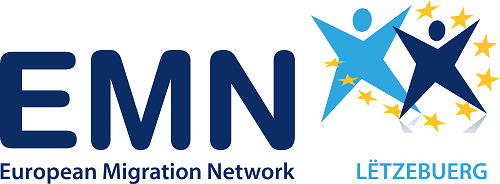The joint EMN-OECD Roundtable on Digitalisation in Migration Management took place on Thursday, 10 February 2022, 9.30-13.00 CET.
The European Migration Network’s (EMN) inform on the ‘Use of digitalisation and Artificial Intelligence in migration management,’ part of the inform series on Innovation in Migration, was presented during the Roundtable, which aimed to foster further debate on the opportunities and challenges of harnessing digital technologies in the migration area, and to showcase innovative practices.
Policymakers are increasingly turning to digital systems and innovative technologies to support situational awareness and the planning, development, and implementation of policies in migration management. The EMN-OECD Roundtable aimed to stimulate critical discussion on these topics, with presentations highlighting forward-looking research and from practitioners working on developing Artificial Intelligence (AI) applications and digital technologies.
The European digital strategy fosters the digital transformation of public services in the EU, stressing the importance of a society powered by digital solutions. As such, digital technologies can be useful for example to support asylum, legal migration and return procedures. The EU Pact on Migration and Asylum and the United Nation’s Sustainable Development Goals emphasise the importance of digitalisation and data management and the Pact places a specific emphasis on early warning and forecasting of migration flows. From forecasting migration patterns and using video conferencing to conducting remote interviews, to providing digital visas and services using ‘chatbots’, policymakers and public services have found wide applications of smart digital services. At the same time, safeguarding privacy and ethical standards remains a critical challenge that must be addressed as technology develops, and it has been widely agreed that AI and digital technologies cannot replace the human factor in all processes, for example, in sensitive and complex decision-making, such as on applications for asylum. Blockchains, that allow for a secure transfer of information through a decentralised database structure, and which are increasingly viewed as the technology of the future, may offer solutions for specific challenges in coordination and security of information transfers.
The Roundtable was open to a wide range of audiences, including policy makers, practitioners, civil society, non-governmental organisations, academia and private sector experts in digitalisation and AI technologies such as migration-oriented start-ups using AI and blockchain technologies in the migration field.
The full agenda and a summary of the event in French is available below. The summary was written by EMN France.

